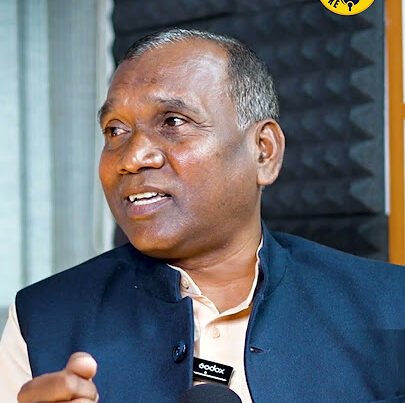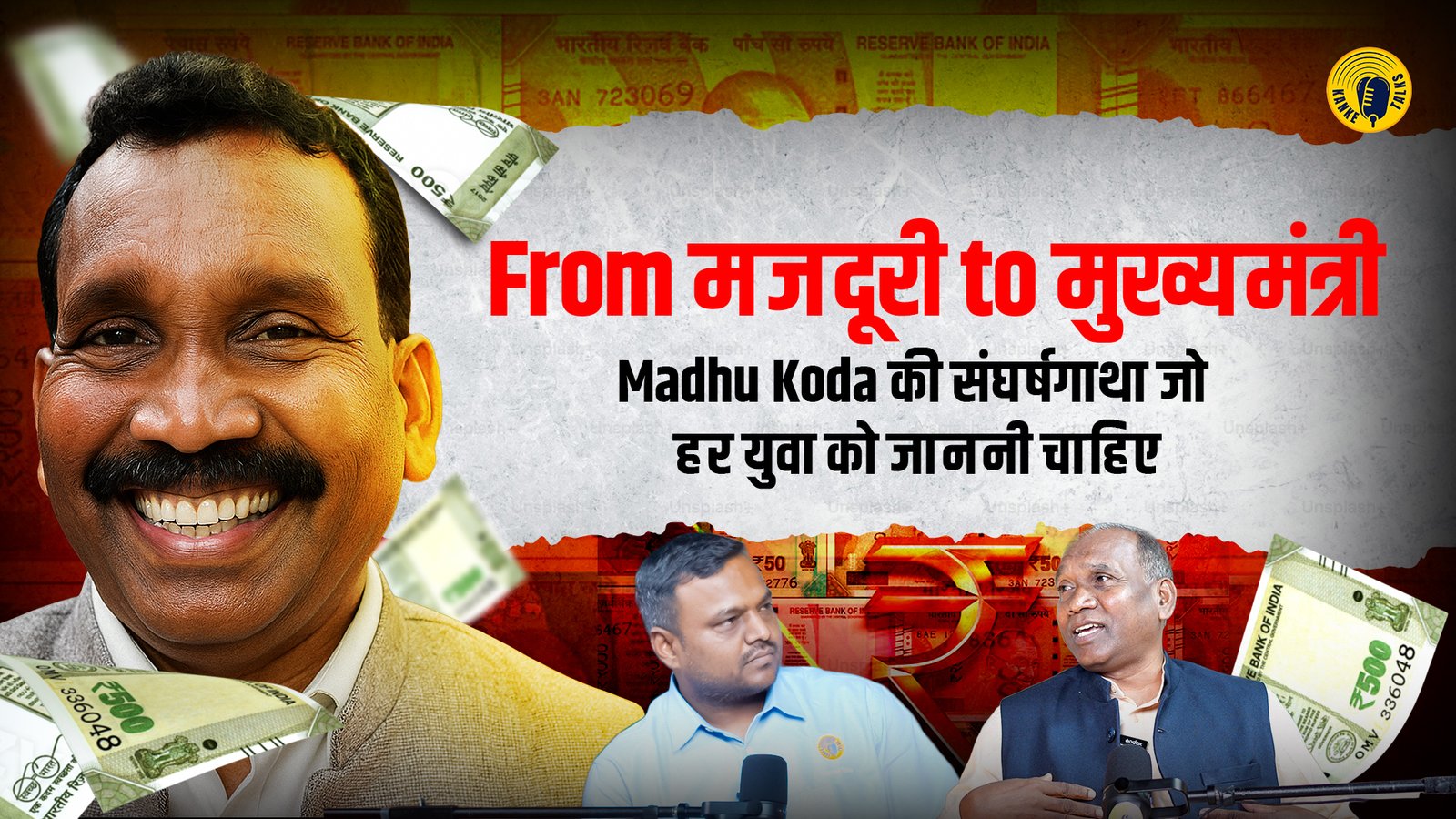In the thick forests of Saranda, deep within the mineral-rich lands of West Singhbhum, Jharkhand, a young tribal boy once hauled iron ore in sweat-drenched shirts, unaware that fate had plans far greater than the mines he toiled in.
That boy was Madhu Koda, who would one day rise to become India’s only Independent Chief Minister — a political anomaly, a story of ambition born from the soil, and later, a subject of one of the country’s most controversial political sagas.

The Making of a Leader
Madhu Koda’s early life reads like a grassroots survival manual. Born into poverty, his father worked as a daily wage laborer. Education came courtesy of a rural scholarship scheme. He recalls a moment when his school’s hostel was overtaken by security forces — a move that ignited his first student protest. “That protest,” he says, “was my first step into activism.” From a laborer’s son to a youth union leader, Koda’s sense of justice only grew. He led agitations against wage exploitation and moneylenders in his village, emerging as a protector of the marginalized. Politics wasn’t a distant dream — it was an organic transition. He joined the Bharatiya Janata Party (BJP) in the 1990s and contested his first election in 1995. He lost. But in 2000, Jharkhand was carved out of Bihar, and Madhu Koda won from Jagannathpur, entering the Assembly and the state’s first Cabinet.
The Accidental Chief Minister
2005 was a turning point. Koda was denied a ticket by BJP — possibly due to internal politics. Undeterred, he contested as an Independent and won with a massive margin. In a fractured political landscape, no party had a clear majority. Amid shifting alliances, a strange consensus emerged.
With mistrust rife among major players — Congress, RJD, and Jharkhand Mukti Morcha (JMM) — Koda, an independent MLA, became the unlikely bridge. “It was like a puzzle where no one trusted anyone,” he recalls.
On 14 September 2006, at the age of 35, Madhu Koda became the youngest Chief Minister of Jharkhand, supported externally by the Congress and JMM. “I never imagined sitting in the CM’s chair,” he says, “but I saw it as a chance to serve my people better.”
Coalitions, Compromise, and Chaos
Running a coalition government is like trying to tame wild horses — and Koda’s tenure was no different. He juggled agendas, appeased egos, and tried to retain his autonomy. “I was surrounded by parties with different visions,” he said. “Everyone wanted transfers, contracts, postings — it was exhausting.” Despite these constraints, his government pushed for rural electrification, village roads, industrial policies favoring locals, and tribal self-governance systems. He emphasized electrification, minor mineral rights for locals, and the creation of ring roads — many of which were later completed. But governance wasn’t the only challenge.
The Shadow of Allegations
In 2009, after leaving office, a storm broke. Madhu Koda was accused in a ₹4,000 crore mining scam, arrested by Jharkhand State Vigilance and later investigated by the CBI, ED, and IT Department. A media frenzy followed. His name was tied to shady figures like Vinod Sinha and Sanjay Choudhary. Assets in South Africa, gold mines, Dubai hotels — his name was attached to them all.
Koda, however, has consistently maintained innocence. “The documents produced in court didn’t even have my signature,” he says. “I didn’t even have ₹50,000 at home, yet they say I looted ₹4,000 crores!”
Politics or Persecution?
He believes his arrest was politically motivated. “I was called for questioning on December 4th,” he recalls, “but arrested on November 30th — before I could present my side.” At the time, President’s Rule was in place, and Koda hints that his arrest was orchestrated to neutralize him during the elections. “Even in court,” he says, “I asked: if I took money, who gave it? Why isn’t that person on trial?” He claims that media magnates, political rivals, and even industrialists wanted him sidelined. “They saw me as a barrier — someone who wouldn’t bend to illegal demands,” he asserts.
Conviction and Comeback
In 2014, the CBI filed a charge in the Rajarhat coal block allocation scam, where Koda was eventually convicted. However, he maintains that the state government had no legal authority over coal allocation — only the Centre did. “The Prime Minister’s Office and Coal Ministry had the final say. Why am I the only one convicted?” he asks. “I only recommended prioritizing local industries.” His conviction drew mixed reactions. While legal battles continue — he has served 44 months in jail — Koda insists the judicial process must be fair and equal. “Why does my case drag for 15 years while others get midnight hearings?” he questions, referencing the selective urgency sometimes seen in Indian courts.
The Human Behind the Headlines
What gets lost in the headlines is the human story. The tribal boy who rose to power without a dynasty or backing. The man who slept on courtroom benches during hearings because he couldn’t afford a lawyer. The political outlier who continues to speak out for tribal and rural rights.
Despite it all, Koda remains defiant yet grounded. “We were crushed because we didn’t know the diplomacy of politics. But we will continue serving the people.”
Today, he lives not as a politician hungry for office, but as a grassroots worker still trying to rebuild trust.

No responses yet